Search Results for Tag: Climate
Fresh wind for the climate?
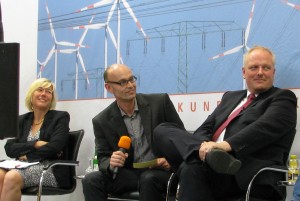
My colleague Gero Rueter chairing the panel, here with Syliva Pilarsky-Grosch, vice-president of the German Bundesverband WindEnergie and Ulrich Kelber, member of the Bundestag and SPD expert on environment and energy issues.
The World Wind Energy Conference started in Bonn today, focusing attention on the role of decentralized wind power. It’s an interesting topic at this particular time with a big debate going on here in Germany over the role large offshore wind parks should play in securing a renewable energy supply. At a kick-off panel discussion organised last night by the Friedrich Ebert Foundation and the World Wind Energy Association, one of the main conference organisers, the speakers provided plenty of arguments in favour of smaller, decentralized systems with different ownership models, from citizens’ groups to local authorities, rather than large offshore parks run by big industry. At today’s official opening ceremony in the Bonn Conference Centre, a federal government representative, Secretary of State in the Environment Ministry Jürgen Becker, made the case for having both. The main problem with the big offshore parks at the moment is how to successfully connect them to the grid and get the power from Germany’s North Sea coast to where it’s needed farther south. Interesting discussions ahead. There are large delegations from China and Canada attending the conference, countries with a key interest in wind power. I bumped into a colleague from Japan this morning, who said he was covering the conference because of the urgent need to develop renewables in Japan after Fukushima.
Greenpeace on the streets to save Arctic
Greenpeace have launched a “Save the Arctic” campaign to stop oil drilling in the Arctic.
Activists have been out on the streets around the globe today – including in Bonn! I dropped by to see what was going on and record some interviews for Living Planet, our radio magazine. It was great to see the Arctic featuring in Bad Godesberg centre on a sunny morning with the shoppers out and about. I talked to Ulrike and Lukas, two different generations, both out to tell people about the dangers of oil drilling in the pristine Arctic environment. Lukas is 20 and really into environment protection. Tune in this coming Thursday evening to hear Lukas and Ulrike talk about their work. They – and all the other Greenpeace volunteers out around the planet – are collecting signatures for a petition to protect the Arctic. The signatures will be put together into a sealed container and deposited near the North Pole – where the Russian submarine put a flag a few years ago.
The Arctic doesn’t belong to one country, is the message – we need to protect it for all of us. Good work guys, thanks for spending your free time doing this and I hope you got lots more attention at your stand!
More Arctic stories:
China’s Arctic Ambitions spark concern
Energy giants cooperate for Arctic resources
Scientists raise Greenland climate threat
Greenpeace helps scientists research Arctic ocean
Rio 20 years on – and where’s the climate now?
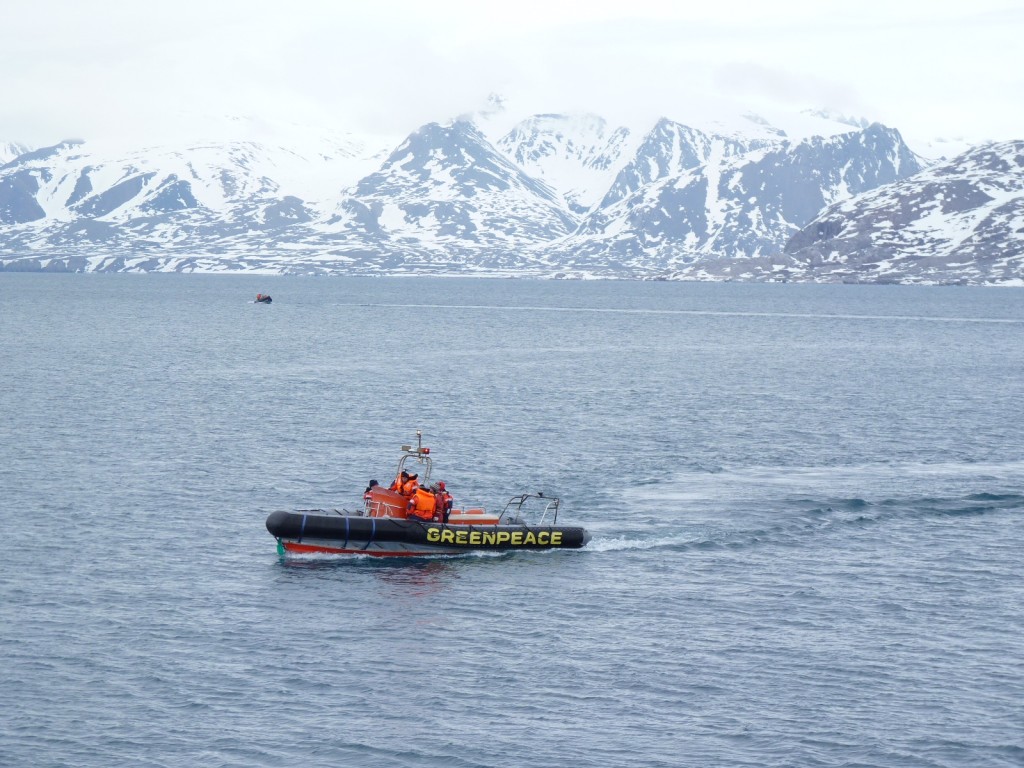
Greenpeace is regularly out and about in the Arctic, here off Spitzbergen. No wonder the activists are disappointed with Rio so far
I’ve just been working on an article on the record high CO2 concentration measured in Arctic Alaska in May. And it really brings it home to me that since the famous Earth summit in Rio in 1992 set the alarm bells ringing and the wheels in motion to tackle climate change – we have not really achieved very much. Now I am generally an optimistic person, but given that CO2 emissions were up again in 2011, the UN climate secretariat is still struggling to get countries on board for a Kyoto follow-up agreement, the USA still resists any binding targets and China and the other emerging countries are understandably unwilling to compromise their development to start solving a problem we industrialised countries caused – it is hard to work up enthusiasm for the Rio meeting. Copenhagen showed us all what can come of having expectations that are too high. Basically, the draft declaration from the meeting (sometimes I think it makes a bit of a farce of the huge meetings themselves that the draft has to be ready beforehand, but I understand the political and economic realities behind this) has already polarised response: on the one hand, the politicians who (have to?) say they would have liked more but we are lucky to get even this meagre document, on the other the ngos and activists who have expressed huge disappointment or even disgust. Let me give you a short quote from Kumi Naidoo’s blog, he’s executive director of Greenpeace International:
“The Future we Want is nowhere to be found in the already agreed Rio+20 outcome text, which world leaders are now rubber stamping and Greenwashing. The spin cycle has begun. At the same time some 20,000 people marched on the streets of Rio in protest with an air of despair but clinging to hope.”
Let’s keep hoping…
Arctic CO2 hits alarming levels
Worrying news from scientists in the USA monitoring the global CO2 concentration. NOAA (The US National Oceanic and Atmospheric Administration) says for the first time ever, more than 400ppm (parts per million) have been measured in the atmosphere in the Arctic. This is a very worrying development. Jim Butler, who’s in charge of global monitoring at NOAA, says this should be a reminder to everybody that we are in deep trouble. CO2 concentration has been rising increasingly fast. 350 ppm is the figure many scientists say is the highest the earth can go without being in danger from drastic climate change.
So far, it’s only the Arctic – which is heating up around twice as fast as the rest of the planet – where the 400pm mark has been reached. The average is around 395ppm for the rest of the world. But the NOAA researchers – not known for exaggeration I’d say – say the 400 mark will be reached in just a few years.
Bearing in mind the lack of progress in international negotiations, with a report recently published indicating we’re heading for a 3.5 degree C rise in global temperature, way above the 2° target set by the international community, it’s hard to see how we are going to turn this around. And, as Professor Mojib Latif, one of the IPCC lead authors and a renowned meteorologist and climate expert, reminded me just last week, even those 2° would be a major challenge and unprecendented for the earth.
Climate talks and linguistic finesse
Do you know the feeling when you read minutes or an account of a meeting and wonder if the person who wrote it was actually at the same event as you? Subjective perceptions are often very different, and that is even more the case when it comes to international negotiations about climate change. I remember when the last head of the UNFCCC Yvo de Boer resigned in the wake of the Copenhagen climate talks fiasco, I wrote a commentary entitled “No job for an optimist”. Maybe I should have turned it around to “optimism essential” – or at least keeping a positive attitude and repeatedly sending out positive signals no matter how frustrating the process is.
![]() read more
read more




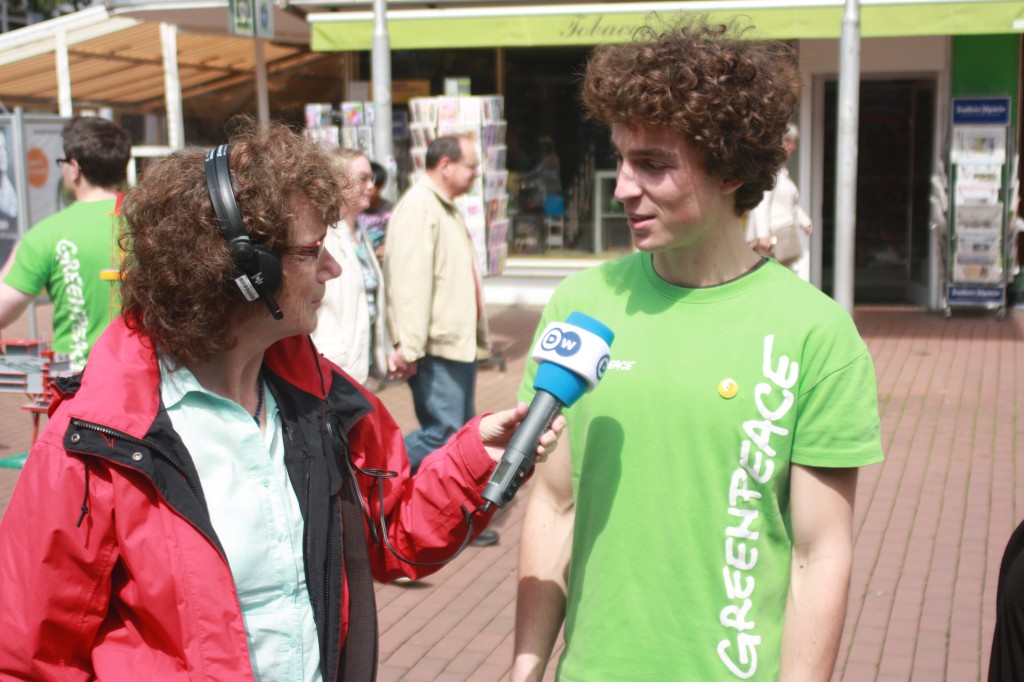
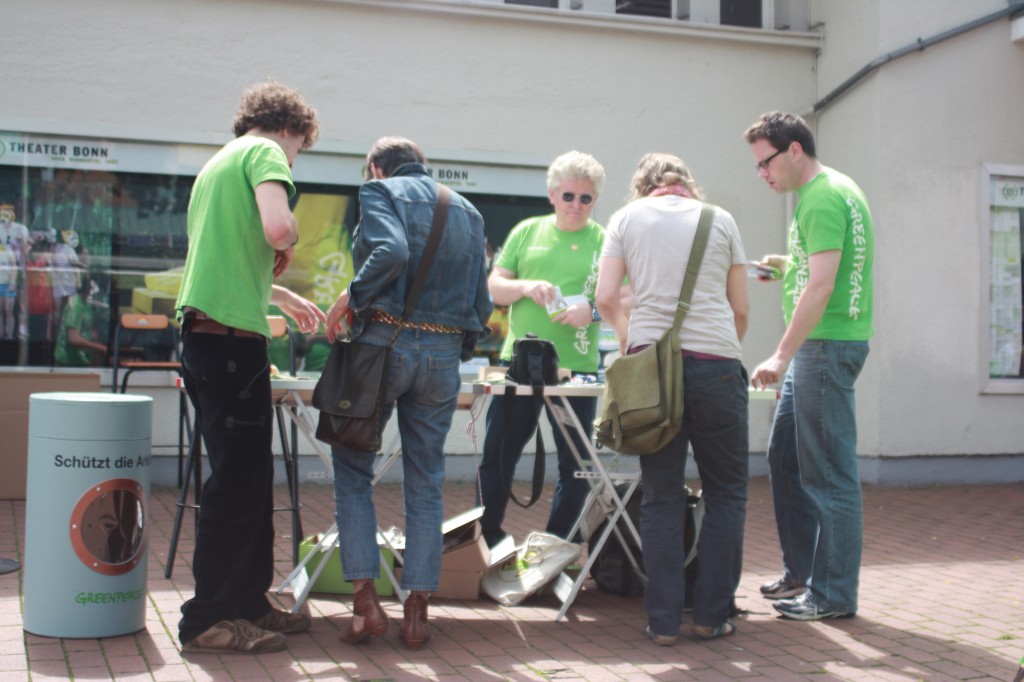
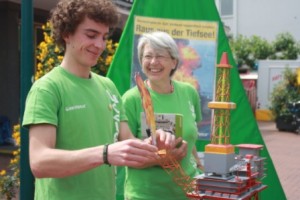
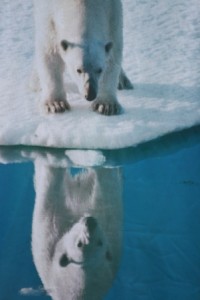
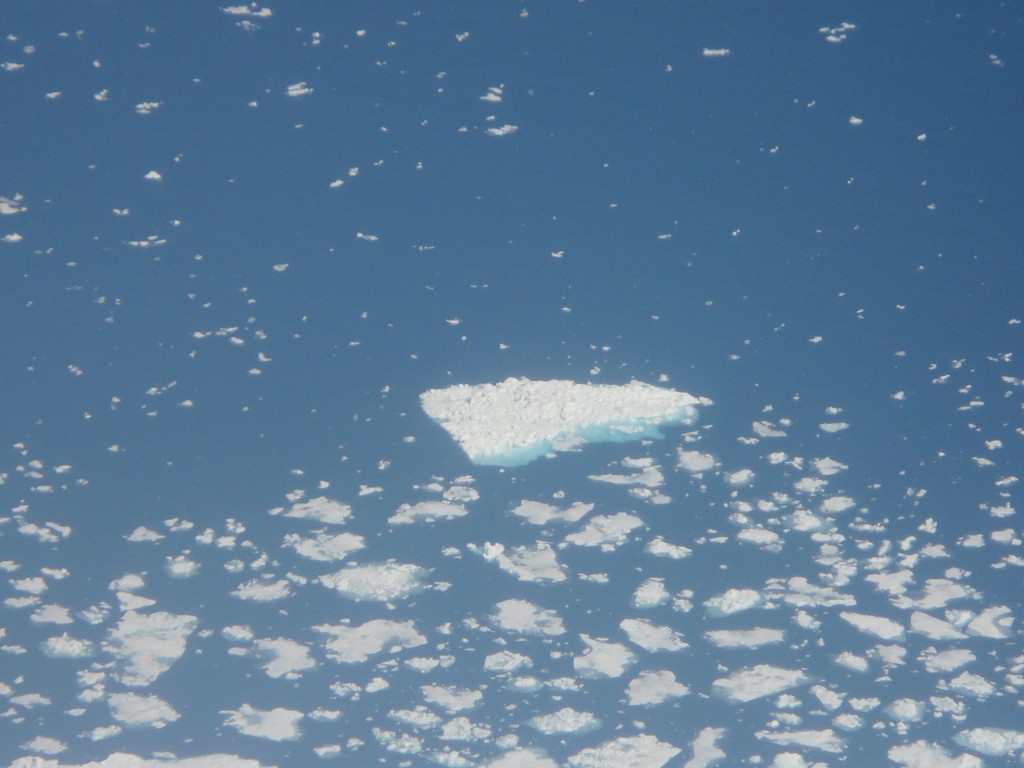
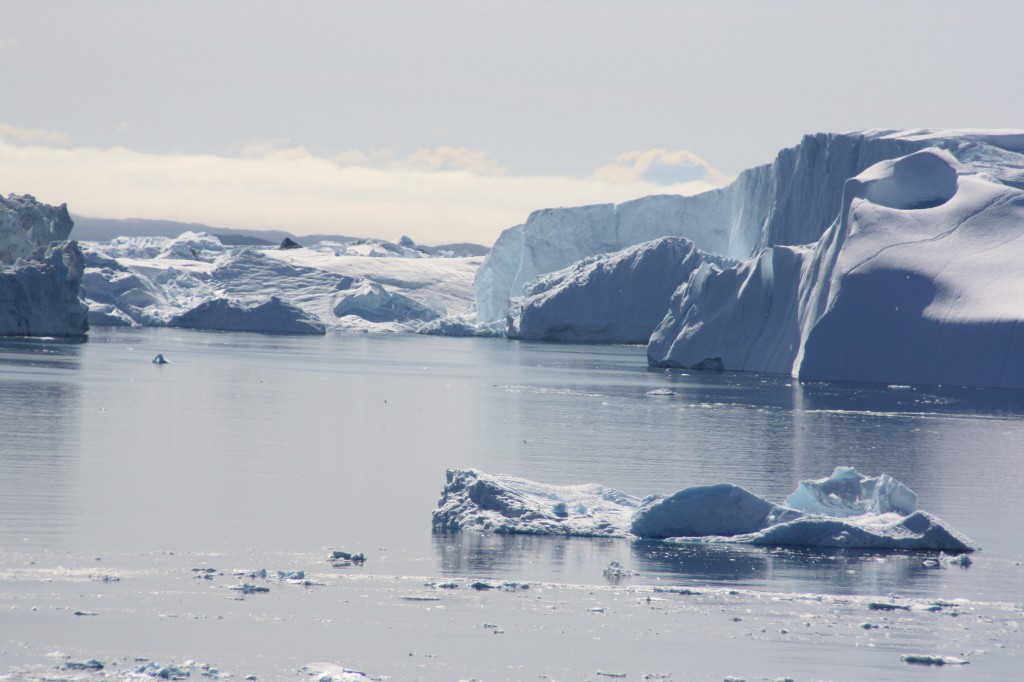
















Feedback